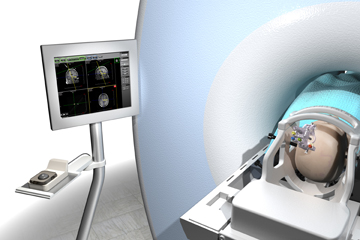Brain monitoring equipment can detect neurological and
cardiovascular disorders. Development of wireless and smart devices can improve
comfort level and life expectancy of the patients in the long run.
What are Brain
Monitoring Devices?
Brain monitoring devices can detect and analyze unusual brain
activity. They monitor blood flow to the brain during surgeries. According to the
World Health Organization (WHO), nearly 50 million people around the world were
afflicted with epilepsy in 2011. Companies are rising to this challenge by
manufacturing user-friendly and economical equipment. Technological advancements
have led to their implantation in pre- and post-operative stages. These devices
can measure anesthesia levels to avoid the possibility of intraoperative
awareness in patients.
Monitoring the Depth of
Anesthesia
Cortical Dynamics, a prominent brain monitoring equipment manufacturer, recently launched its
latest device, Brain Anaesthesia Response (BAR). It can prevent intraoperative
awareness. This device can replace Electroencephalography (EEG) devices in the near
future by improving patient outcomes and lowering anesthesia costs. The
geriatric population will be the biggest beneficiary of this device.
Wearable Brain
Monitoring
This latest breakthrough technology could be a step forward
in terms of portability. Miniaturization of sensors could lead to the
development of affordable sensors in the forthcoming years. These sensors can
be used for additional cognitive trials during drug trials. Researchers at the
University of Illinois have developed a dissolvable monitoring device that can monitor
and analyze brain waves. Although, this device is still in its testing phase,
it successfully monitored brain waves of the lab rats for around three days.
Market Scenario
According to a report available on Radiant Insights, Inc.; the
brain monitoring equipment market in United States is projected to gain
significant revenue by 2022. Rising incidence of brain disorders such as
multiple sclerosis, Alzheimer’s, and epilepsy can impel market growth over the
forecast period (2012 to 2022) . Urgent requirement from Intensive Care
Units (ICUs) can positively impact the expansion.
EEG devices may emerge as one of the biggest products in the
forthcoming years due to their application in epilepsy and sleep disorders. Magnetic
Resonance Imaging (MRI) devices may exhibit a high CAGR till 2022. Ongoing
technological advancements can boost this growth. Prominent market players
include Natus Medical Incorporated, Siemens Healthineers, Philips Healthcare,
and Advanced Brain Monitoring.
Free sample request @
http://www.radiantinsights.com/research/united-states-brain-monitoring-equipments-industry-2017/request-sample
http://www.radiantinsights.com/research/united-states-brain-monitoring-equipments-industry-2017/request-sample

No comments:
Post a Comment